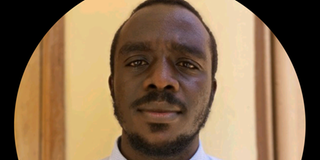Barnabas Kipruto: My life as a midwife in Nakuru's largest maternity wing

Barnabas Kipruto is a midwife based at the Nakuru Teaching and Referral Hospital.
Sometime in 2018, Barnabas Kipruto, a nursing officer practicing midwifery at the Nakuru Teaching and Referral Hospital (PGH), was ready to go home after a long day.
But when he saw a mother about to give birth approaching the hospital, he abandoned his quest and assisted the mother to the Margaret Kenyatta mother baby maternity wing.
Then a third year medical student, Barnabas coincidentally helped deliver a bouncing baby boy.
“While doing the routine rotations to find out how the mother was doing, she broke the news that she had named her baby after me,” he says smiling.
For him, despite having many memorable experiences as a midwife, this was one that has stuck with him to date.
Back in high school, Barnabas says he knew he wanted to be in the medical field but hadn’t figured out what to specialize in.
In a bid to get some clarity, he apprenticed in a hospital in Eldama Ravine to get a feel of what to expect before joining medical school in September 2015.
“I remember when I was joining campus someone asked ‘Utaenda kua mkunga?’, and I was a bit hesitant and thought about how I wanted to remain with other nurses in general nursing,” he says.
During his Bachelor’s while doing the clinical rotations, he says one of the most interesting rotations he ever had was midwifery.
“The first time I witnessed a birth and the beauty of a life being brought forth I knew that is what I wanted to do for the rest of my life.”
He notes an interesting dynamic in his department where only a quarter of the midwives are female making male midwives the majority.
Asked what the hardest part about his job is, Barnabas says it is always a heart breaking experience when they lose a mom or a baby during birth.
“In search instances I take some days off and go through counselling to recover.”
Most days are filled with happiness and gratitude when both the mom and the baby are in a stable condition, which he says brings a sense of fulfilment to his work.
For Barnabas, he foresees the future as having more male nurses and midwives and encourages many other young men to take midwifery as a specialization.


